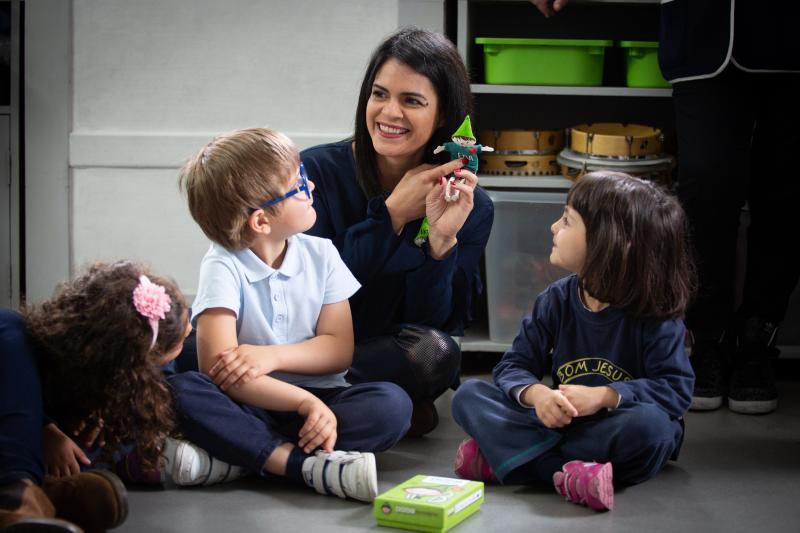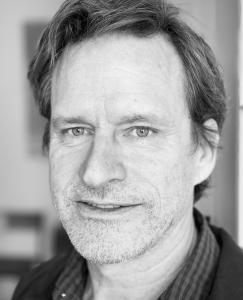Teacher in Portugal creates learning methodology to help disabled children to read with the help of EKUI, the elf
When Portuguese elementary students begin learning with the methodology created by Celmira Macedo, they are told the story of an elf named EKUI and the Barrier Monster.
In this tale, the children, some who are blind or deaf or living with other disabilities, are the heroes.
With EKUI the elf at their side, they fight to remove the barriers that keep everyone from learning together. The story is spoken, shown in sign language, and has a Braille version.
It’s the beginning of a journey in which all the students remain in the same classroom. In addition to reading with their eyes and hearing, if they can, the students learn to sign the alphabet with their hands, and to feel it under their fingers with the bumps of the Braille system.
“When children, with and without disabilities, are exposed to these different approaches — visual, auditory, kinaesthetic, and tactile — they are able to learn faster and also are able to adapt the way they learn to their abilities,” says Celmira, the teacher who created the EKUI methodology.
This system turns the standard approach in Portuguese schools on its head.
Normally, students who are blind, deaf, or dealing with autism spectrum disorders are removed from the classroom periodically to learn skills specific to them. With EKUI (equity, knowledge, universality, inclusion), teachers engage the entire classroom with a system of flash cards that use Braille, sign language, visual cues (showing how the mouth is shaped to make a sound), and the written letter.
Celmira says it has been rewarding to hear stories about children who explain to their parents what the Braille in an elevator says, or who spontaneously approach deaf people to say hello by signing.
It’s a sign of the kind of empathy her system is designed to foster.
EKUI has been adopted in more than 450 classrooms across more than 70 towns and cities in Portugal, and almost 9 000 teachers have been trained in the methodology, which has been recognised with numerous honours. EKUI was a finalist in the 2016 Social Innovation Tournament, sponsored by the EIB Institute to help companies find solutions to social and environmental problems. In 2021, Celmira was named an Ashoka fellow.
Overcoming learning obstacles
The passion Celmira brings to EKUI is fuelled by the barriers she has faced.
When she was four, in 1975, the civil war broke out in Angola, where her family lived and farmed. She was sent to Portugal to live with relatives. Eventually, her parents fled as well.
Being an outsider, she was bullied and ostracized. She recalls that even as a child, she formed a resolve that she carries to this day.
“I looked around, and in the corner, there we were. The children who came from other countries and the children with disabilities.” she says. “I developed this sense of justice and I said, ‘No, no, in my life, I will make sure this never happens again.’ So I grew up with this sense of empathy. It’s in my skin.”

EKUI the elf helps children who are often left behind by the education system
Unable to pursue a career in law, she stayed close to home in northern Portugal and became a teacher. “The mission was the same, I could bring justice and inclusion to my environment,” she says.
Teaching in the Portuguese school system was eye opening. She saw that, while the ideal of the system was laudable, the reality left many children behind.
To seek solutions, she pursued a Ph.D. at the University of Salamanca in Spain. During that time, at the age of 33, she had the first of two strokes. For a brief period, she lost the ability to speak.
“In that moment, because my stressful life had led me to that place, I thought ‘Whoa, I am in their shoes,’ and it’s terrible. You wouldn’t even be able to say, ‘Help me.’”
Her life and health experiences as a child and as an adult gave her the certainty that a methodology that taught communication through multiple channels was the correct one. EKUI was born.
An inclusive approach
Liliana Silva is primary school teacher at the Colégio de Gaia in Vila Nova de Gaia, near Porto. Her students are six to 10 years old, and learning to read and write are at the top of the curriculum. She used the EKUI system for the first time in the 2021-22 school year.
“My students became more sensitive to diversity, learned comparatively faster than other
groups I had taught, and finished the school year reading and writing with ease,” she says. “Using EKUI I learned more about how children learn. It affected my approach to teaching which I feel is now a lot more inclusive.”
Children learn by using flash cards that use Braille, sign language, visual cues and the written letter
The EKUI team consists of five people for now. The non-profit organisation supports itself with the sale of the card system with a two-hour training, at about $18 per deck, and another “pro” version at $40. Further training, as much as 25 hours of it, is available for a fee for teachers, therapists and others.
Celmira is expanding EKUI to other countries, including Brazil. She’s also working on a scientific study of the impact of EKUI on students’ learning in cooperation with the Catholic University of Portugal in Braga. The initial results show an effectiveness in learning the letters (72% of cases); communication skills and development of phonetic skills (79%); improvement of inclusive attitudes (90%); and teachers change their pedagogical practice’s, to more inclusive ones (67%).
“EKUI is not a $1 billion making machine, but it can be a $1 billion saving machine,” she says. “We all deserve to be included in society: promoting an inclusive and quality education You can save so much money to the state, to families, to us, to everyone.”
